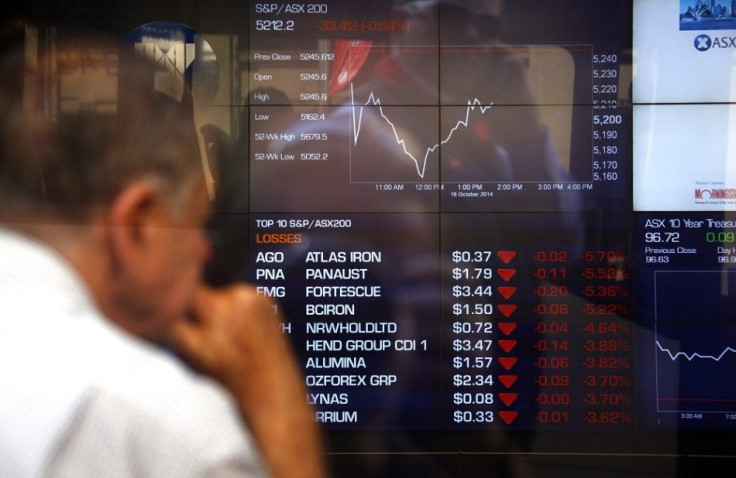UK market recovers while US share prices continue to fall

U.K.’s FTSE 100 shares index saw a surprising rise in share value after 11 consecutive days of losses following China’s "Black Monday," sparked by an interest rate cut in China. But the U.S. market continued to take a beating, hardly seeing any upward movements in the share charts.
FTSE shares rose up with 3.09 percent (182 points) and reached £46.7 billion (AU$103 billion) following the previous day’s loss of around £74 billion (AU$163 billion), which accounted for a 4.7 (289 points) percent loss – the biggest since 2009 on Monday. On the other hand, the Dow Jones witnessed a drop of more than 200 points on Tuesday, nullifying the gain of 2.3 percent it had enjoyed earlier after huge losses on Monday.
The European markets also took a sigh of relief with little rise in their share values. Both DAX of Germany and CAC of France were up at four percent during closure. Share market commentators declared the day as "Turnaround Tuesday" after the "Black Monday."
However, the Shanghai Composite Index depicted a fall of 7.6 percent, the worst fall in past eight months, after which China cut interest rates to try and improve the market conditions. The People’s Bank of China, for the fifth time in nine months, reduced the cost of borrowing to trigger positive fluctuations in the economy. China, however, still faces huge economic challenges, which has now forced it to announce a boosting of the money supply to the country’s weaker sectors.
Contact the writer at feedback@ibtimes.com.au, or let us know what you think below.






